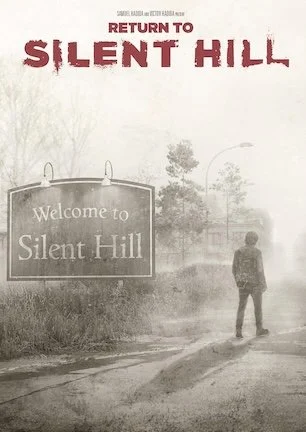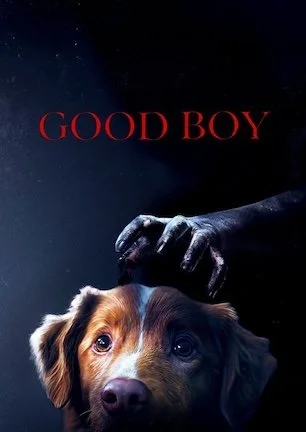Studio: Image Entertainment
Director: Walter Boholst
Writer: Walter Boholst
Producer: Barney Burman, Walter Boholst, Mark Burman, Doug Wroan
Stars: Ryan Caltagirone, Kerry Knuppe, David Thomas Jenkins, Treva Etienne, Tomas Boykin, Nancy La Scala, Danny Trejo
Review Score:
Summary:
After his brother goes missing, a troubled man and his tabloid reporter girlfriend travel to Haiti and uncover a demonic voodoo connection to the disappearance.
Review:
In a recent film-related email exchange, my brother made the half-joke, half-astute observation that “if Danny Trejo is in a movie, it’s an interesting, if not great movie.” I countered by pointing out that while enjoyment of any bigger Hollywood production with Trejo in the cast is often a foregone conclusion, in no way does such universal praise apply to the barrel bottom genre junk he takes as a quick payday. Check out a snoozer like “The Cloth” (review here) if you don’t believe me.
A director such as Robert Rodriguez knows how to coax a star caliber performance out of the actor. Someone like Rob Zombie recognizes meaningful ways to put Trejo’s unique screen presence to smart use in personally tailored supporting roles. Then there are productions whose selfish interest in name recognition is matched with an overeager willingness to write a check without thoughtfully considering what to do with the talent.
“Voodoo Possession” falls into that last lot. This is a movie with no shame in exploiting an agent who cannot say no and an audience who will watch anything with the words “Danny Trejo” above the title.
It is fittingly appropriate that voodoo is occasionally debased as “mumbo jumbo” because “Voodoo Possession” has plenty of it. Mumbo jumbo, that is. Voodoo, not so much.
A doctor goes missing in Haiti, prompting a tabloid TV reporter to take the doctor’s estranged brother, who is also her boyfriend, and conduct a search. What they uncover is a connection between the doctor’s strange medical practices and voodoo rituals of resurrection. This in turn leads to a path of self-discovery when a trip to the spirit world forces everyone involved to confront figurative and literal demons created from the guilt of their individual pasts.
This odd story moves forward at a rate only slightly faster than the speed at which ice melts in the freezer. Urgency is absent from virtually everything taking place onscreen as characters carry on conversations serving purposes of exposition alone well into the third act. Unfolding so casually and so continually throughout so much of the film would be a momentum killer if the movie had any to begin with. It is a tempo with neither peaks nor troughs, but an even level of flat energy from the opening titles to the end ones.
By the time those final credits do roll, Danny Trejo’s brief appearances earlier in the film are already forgotten. Trejo is misused, and likely overpaid, in an unimportant role that any community theater stock player could fit into just the same.
Incidentally, there must be a story behind why the movie’s cover art removed the prominently featured image of Trejo and replaced it with a befuddling montage that looks like it was created with Presto Magix rub-ons. Not to mention the fact that it borrows cover art imagery from “The Realm,” which was the retitled UK release of “The Ouija Experiment” (review here). Neither “Voodoo Possession” poster depicts anything that actually happens in the film. I can only guess that a legal obligation of some sort prevented fully misrepresenting the film as a Trejo vehicle.
Even if “Voodoo Possession” did not have a rambling screenplay, it would still be visually uninteresting. The set is obviously the overused Linda Vista Hospital and its dirty industrial rooms are dressed to stand in for apartments and homes as well as the medical facility. Thus, everything looks the same no matter the scene. Overhead lights wash all of the scenery in similar orange tones. The most excitement the cinematography injects is tilting the camera for a Dutch angle, which was probably done to alleviate the director of photography’s boredom.
Other than being set in Haiti, yet clearly filmed in Los Angeles, “Voodoo Possession” has little to do with voodoo. Its theme of confronting guilt and its story of astral projection through traumatic memories could have been accomplished in any number of more interesting ways. Shoehorning a connection to Haitian voodoo saddles the story with unneeded setups like a villain who resembles a raving street derelict in a wife beater and skull face paint. Like most other things about the film, it plays as far more nonsensical than it does as frightening.
A particularly uninspired dialogue line offers the stale joke, “how do we know when we get to voodoo hell, does it look like the DMV?” Probably not. But I bet it looks like this dull and forgettable movie.
Review Score: 40






While the 110-minute runtime could use a trim to maintain more energy, “Redux Redux” is an easy recommend for anyone who enjoys low-key sci-fi.